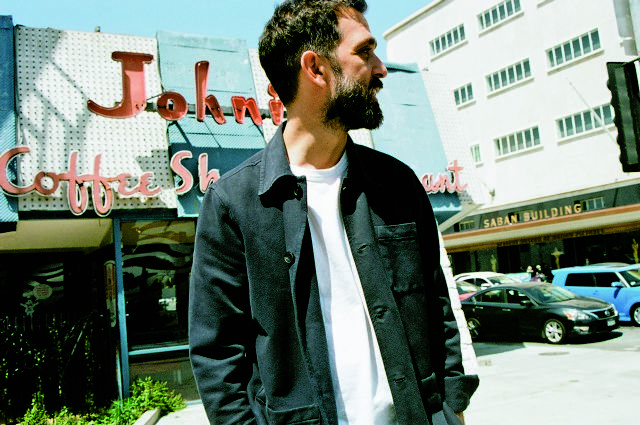‘The audience does not need to be told how to feel,’ says LA-based Greek film composer

Film and television music writer Alexis Grapsas has been very busy in the past 15 years and it doesn’t look like he’ll be slowing down anytime soon. The Los Angeles-based Greek composer behind “Pig” (2021), “Monday” (2020) and “Empire” (2015) just wrapped up two series for Disney and FX/Hulu, is working on an independent American feature film and another series for the UK’s Channel 4, and is also busy writing the soundtrack for a major Paramount production that is slated to come out next year.
Kathimerini caught up with the Lefkada-born and Sundance Institute alumni to ask him what he’s looking forward to and how he got to where he is today.
What were some of the challenges you had to face starting out?
‘I had to learn to be a small part of a much bigger creative team that spoke a different language, and to bring my world into theirs’
One of the biggest challenges at the beginning of my career was having to stop thinking like a musician and starting to think like a filmmaker. I had to learn to be a small part of a much bigger creative team that spoke a different language, and to bring my world into theirs. The role of the composer is to be able to turn a conversation with the creators of a film into musical themes that convey the ideas and emotions that have been discussed. I often think of it as the role of a translator and possibly that I was chosen to provide my own interpretation. Instead of thinking about instruments, sounds and chords, I need to immerse myself in the process and think about the flow of the script, the movement of the camera, the color of the image, the pace of the editing, the dialogue and sound effects, and how they will influence the composition. I find this coming together of artists from such different backgrounds completely fascinating. They place their trust in the director and give a small piece of themselves to the higher goal of telling a story.
What do you look for in any new partnership?
I want to work with directors who have fresh ideas, who give me the space I need to work on them, and who allow me to experiment and try new things. I like to start any new project from zero, without feeling that there is a right or wrong way to approach it. The goal, after all, is to write something original, that we have never heard before, and that suits a story we have never seen before. I tend to trust the first reaction I have to something new, because this is also what the audience will feel watching the film for the first time.
Both the film “Pig” and your soundtrack for it got very good reviews. What was your experience of this project?
It was truly a great journey. No matter how confident we were that we had something really good here, the film became much bigger than all of us, in terms of reviews and the box office, despite coming out during the pandemic. The film’s original soundtrack also did well. Some of the creative decisions we took with director Michael Sarnoski with regard to how the music was used were really important, because sometimes, for example, we chose silence, which ended up being another character in the story. It was also important that we saw Nicolas Cage in what is, to my mind, one of the highlights of his career. His delivery of the role has this disarming simplicity and emotional depth.
His face says so much without making a sound, so as a composer you need to take a step back and give it room. The non-use of music in these cases makes it that much more poignant when it does come in. I am more interested in adding something that isn’t there in the picture or the dialogue rather than describing the scene. It’s there; you don’t need the music to underscore it. The audience does not need to be told how to feel. That’s the kind of cinema I am intrigued by. The non-obvious that goes a little bit deeper and doesn’t make it easy. And for my part, I try to create an environment where everybody can feel things in their own way.





